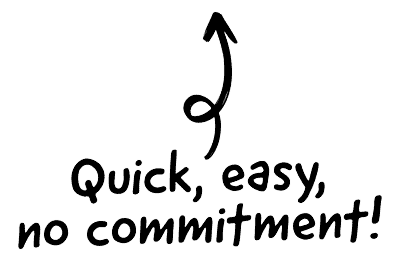No matter what line of work they’re in, many businesses (big and small) make use of freelancers from time to time. Whatever the industry, there is almost always an occasional need for the skills of writers, designers, programmers, marketers, accountants and more – often on a contractual basis. This has done great things for the freelance economy, giving skilled workers the ability to make a flexible, independent living in their chosen field. But while the freedom of the freelance lifestyle is very appealing, there are also certain challenges that new freelancers must be ready to face. There’s no getting away from the fact that going freelance is scary, but if you are willing to take the lessons of others on board, you might just make it.

Find a balance
You’ve heard it before: finding a work-life balance that works for you as a freelancer is very important. Without that balance, it can be difficult to switch off. But on top of that, you must also strive for balance in your work. In addition to making money now, you also need to have some idea of where your work (and money) will be coming from six months to a year down the line. Even if you have plenty of work now, be sure to set aside time every week to find new business, enabling you to plan for the weeks and months ahead.
One of the great advantages of being a freelance pro is that you get to manage your own time and have a say over the kind of work you want to take on, without the pressure of a manager always on your back. But the responsibility has to come from somewhere, so be prepared to do some serious self-motivation.
 Cutting edge payroll software
Cutting edge payroll software
- Powerful and easy to use
- HMRC & RTI compliant
- Used by leading payroll bureaux
 The CRM platform to grow your business
The CRM platform to grow your business
- Great for entrepreneurs
- Powerful data analytics
- Manage sales and data
 Powerful web builder and advanced business tools
Powerful web builder and advanced business tools
- Great for startups
- Powerful web page builder
- E-commerce available
 Supercharged content planning
Supercharged content planning
- Great for marketing
- Better than lists or sheets
- Manage social media
 Create a new website in 10 minutes. Easy.
Create a new website in 10 minutes. Easy.
- Launch your website fast
- Powerful data intuitive
- No coding skills needed
Build your personal brand
That’s right, because as a freelancer you are your brand. You’re not only selling your skills and services to others, you’re selling yourself, so how others perceive you both online and offline will dramatically affect the number of contracts you win. You will be judged on your ability, your professionalism, and your personality. This time it actually is personal – if a client doesn’t get a good impression from you, it’s unlikely they will choose to work with you.
The first step is to have a professional business website to your name, whether that’s a simple brochure-style setup, an online portfolio or an online store (if you’re in ecommerce). DIY website builders make it easy to get set up online, even with no coding knowledge, so there are no excuses.
You will also want to put yourself out there on Facebook, LinkedIn and Twitter. Ensure your profiles are fully filled out with all of the relevant information that your clients need to know. You should also use these platforms to join relevant industry groups and to ask (and answer questions). Social media is as much about wading into conversations and getting involved as it is about having an impressive profile. Quora is another great platform for knowledge sharing.
The aim is to be perceived as an expert in your field, so make sure that comes across. Work hard to start building connections and getting yourself seen, heard and remembered, both online and offline. The internet is a good place to start, but it’s not the be all and end all. Meet your LinkedIn connections for coffee and attend networking events in your industry – it all helps.
Show your contacts some love
A strong network will get you far as a freelancer. Naturally, the place to start is with the people you’ve already met along the way. Reach out to your friends, family, old colleagues and acquaintances to let them know what you’re up to. It’s important to be clear about the kind of work you offer and to make people aware that you’re available. This starts with who you know. If you’ve a favour to ask anyone, make sure you repay them with a lunch or a coffee.
New connections are important too, of course. This could be potential clients or fellow freelancers – it all helps. Other freelancers can be invaluable for their advice and support, particularly those who have been in the freelance line of work for a while. Search around on LinkedIn for others in your industry and start a friendly conversation.
Set your rates wisely
Deciding how much to charge is probably one of the trickiest decisions you’ll make as a freelancer. This is a great example of something that you can lean on your network of friendly fellow freelancers to help you with, which is why it’s so worthwhile to join groups like Creative Freelancers Unite (on Facebook) or Freelancers & Self-Employed Professionals (on LinkedIn).
One thing to remember when setting your rates is that you shouldn’t just base your fees on what you need to earn to survive. It’s about working out what you would make in a similar role as a full-time employee and doing the calculations to give you something roughly similar. Try this freelance hourly rate calculator to get a good idea of how much you can reasonably charge, taking into account your preferred lifestyle, expenses, sick days and holiday. Then compare this figure with the responses you’re getting from your network.
As a new freelancer, you may need to lower your rates right at the beginning to get your foot on the ladder. But always aim to raise your prices to the right level sooner, rather than later.
Keep an eye on the competition
When you’re a new freelancer, you should be aiming to absorb as much information as possible. Be like a sponge. And importantly, take a good look at what your competitors are doing. One thing is for sure, there is a lot of competition out there for freelancers, particularly in fields such as copywriting and graphic design. You want to ensure that you are delivering a level of work (and service) that outstrips your competition. And you might have your work cut out if they’ve been in the business for a while.
The thing is that in the freelance business, you’re on your own. It’s actually not helpful to have enemies; much better to have friends who are in the same boat as you. If you can make friends with other freelancers – even those offering similar services – you can share knowledge and even pass on work to them if you are tied up with other jobs (and vice versa). In essence, be a lovely person offering a good service and even with the competition, there will be people who want to work with you.
Have a life
Finally, try to establish some sort of routine for yourself that will enable you to have a life outside of your freelance work. It’s all too easy to get sucked in, particularly if you work from home. Earning money from home might seem like a dream, but it can result in an ‘always on’ mentality that gets in the way of your downtime. So get to know the hours that work best for you, and when you’re not working, take time to switch off and do something unrelated to work. Without breaks, your work may actually suffer. As discussed earlier on, a successful freelance life is all about balance.
Are you a freelancer or thinking of going freelance? What challenges did you overcome? What’s holding you back? Share your tips, advice and questions below.
Gareth Simpson – Technical SEO & Startup Founder
Gareth is an SEO pro with over 10 years in the industry – much of it as a freelancer. Based in Bristol, UK, his specialisms are blogger outreach and content. You’ll find him running his new startup with a green tea in hand.

